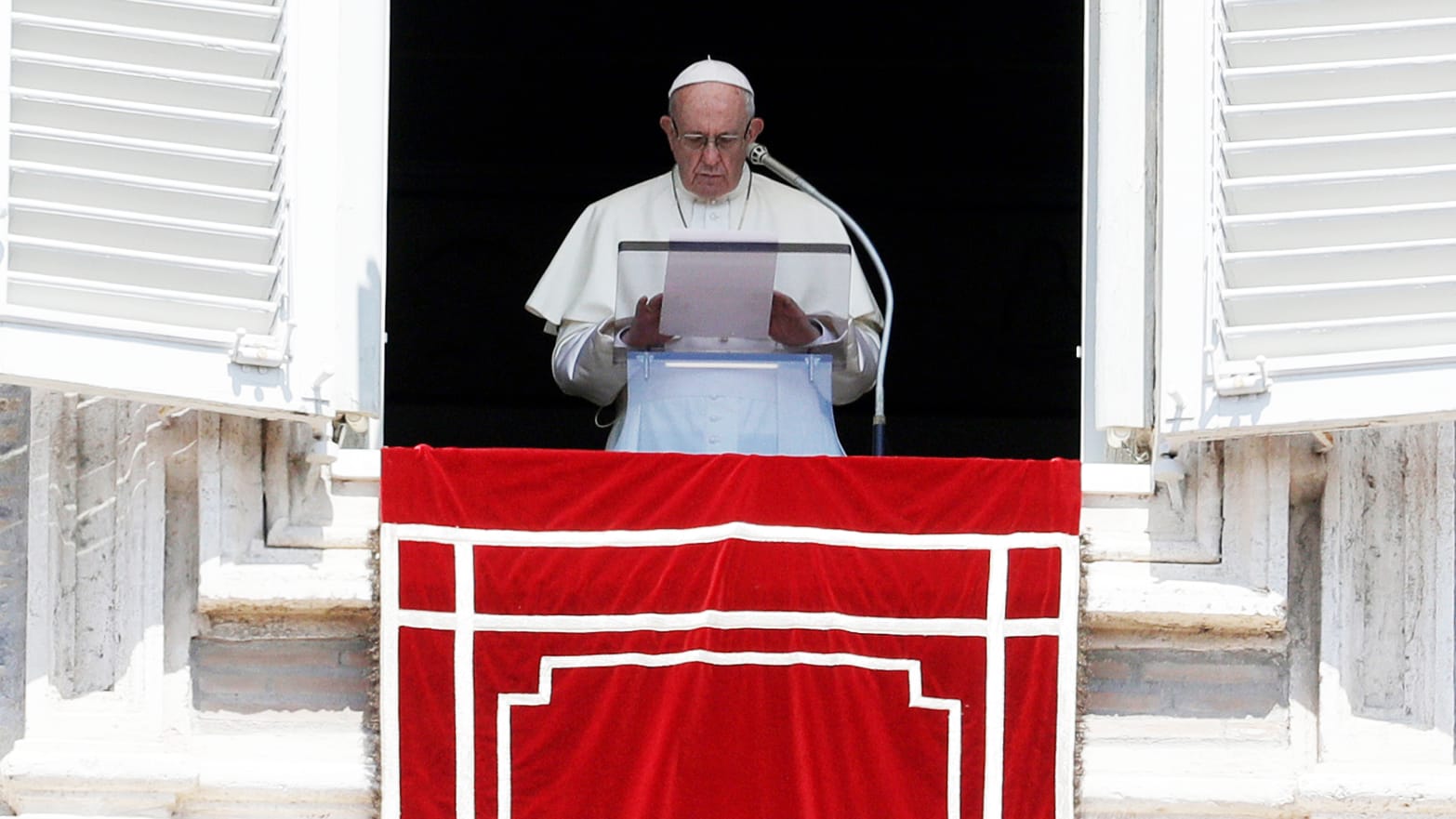ROME—Pope Francis is having a bad week and it’s only Monday.
The pontiff released a long “letter to the people of God” which, in the context of the Catholic faith, means a letter to all baptized Catholics. In an apparent reference to the Pennsylvania grand jury investigation of predatory priests, he refers to a report “which detailed the experiences of at least a thousand survivors, victims of sexual abuse, the abuse of power and of the conscience at the hands of priests over a period of approximately 70 years.”
That description omits the complicity of more than 300 Catholic clergy in that abuse.
Francis starts the letter by doing what the Catholic Church often does—admit to mistakes of the past and promise those days are over. “Even though it can be said that most of these cases belong to the past, nonetheless as time goes on we have come to know the pain of many of the victims,” he writes. “We have realized that these wounds never disappear and that they require us forcefully to condemn these atrocities and join forces in uprooting this culture of death; these wounds never go away.”
He goes on to say that these pleas were “long ignored, kept quiet, or silenced.” That, of course, is an understatement. For decades, the church not only turned deaf ears to the complaints of victims and their families, it responded by moving predator priests around, where they often left a trail of tears. Some priests in Pennsylvania abused more than 100 or more young boys and girls. Others were moved between dozens of parishes where they were essentially given new flocks of young children to abuse.
The pope’s letter is tough. “We showed no care for the little ones,” he writes. “We abandoned them.”
He also blames clericalism, which has been a battle cry since he was elected in 2013. He has referred to it as the “arrogance and self-satisfaction” that permeates the upper echelons of the Catholic hierarchy. In his letter, he refers to it as the root of the problem. “Clericalism, whether fostered by priests themselves or by lay persons, leads to an excision in the ecclesial body that supports and helps to perpetuate many of the evils that we are condemning today,” he warns. “To say ‘no’ to abuse is to say an emphatic ‘no’ to all forms of clericalism.”
Those words may be directed at cardinals like Donald Wuerl, now the archbishop of Washington, D.C. Wuerl served as bishop of Pittsburgh for 18 years, during which he fostered the sort of clericalism that Francis would like to see abolished, working hard to rise through the ranks rather than focusing on tending the flock.
There are Catholic schools named after Wuerl in Pennsylvania. There is even a basketball court with his name on it. He was considered so important to the Catholic Church there they didn’t wait until he died to honor him. But his name is also on countless letters and stamps of approval that either signed off on the movement of predator priests, or that made sure the church continued to support them, even asking in one case that a local hospital write a letter to help a predator priest get out of jail early.
Wuerl was scheduled to accompany Francis on an apostolic visit to Ireland next weekend, but has since canceled, citing the need to stay in the United States to address the Pennsylvania allegations. Cardinal Sean O’Malley, the head of the pope’s commission on clerical sex abuse, also canceled his plans to accompany Francis on the trip. O’Malley is dealing with allegations of clerical sex abuse in the St. John’s Seminary in Boston.
Francis’ letter does not call for resignations or changes to policy or procedures. But he does call out the problems of the recent past. “The extent and the gravity of all that has happened requires coming to grips with this reality in a comprehensive and communal way,” he writes. “While it is important and necessary on every journey of conversion to acknowledge the truth of what has happened, in itself this is not enough.”
“If, in the past, the response was one of omission, today we want solidarity, in the deepest and most challenging sense, to become our way of forging present and future history.” That, he says, is the only way to combat what he calls a “comfortable and self-satisfied form of blindness.”

